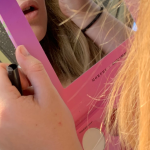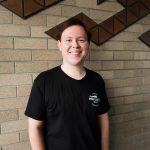I recently had the chance to meet some of the members of the newly formed Queensland branch of Students Against Placement Poverty. We talked about the issues students face when forced to undertake mandatory, unpaid placements and what we can do to change the system.

How did you get involved with Students Against Placement Poverty?
Tamara: Professor Christine Morley has been working with the New South Wales chapter and when we started working with her on a social work placement, she encouraged us to work with them so we could expand what they had already established.
So, did you guys all know each other before coming together for this project?
Tamara: I had always been a big fan of Professor Morley’s work and applied for an indirect placement, due to the challenges of doing a direct placement… Then I met the other beautiful ladies who she was working with and it went from there. We started our own Queensland branch of SAPP as part of our placement.
What drove you to that next step, and to joining this movement of students?
Ana: What is happening in our country right now is an injustice. It feels crazy that as one of the richest countries in the world, with so many resources, students have to choose between studying and having food, or going to uni and buying petrol… For me, it is clear that this is such a big problem in Australia that effects tens of thousands of students. And it will have an effect on the future of vital jobs in Australia.
Tamara: One of the things that COVID taught us is that universities and the industry bodies who set the standards are able to be flexible in how placements are delivered. But now, it’s like COVID is over and we can go back to how it was. But it’s not equitable.
Ana: This is also a profession that attracts predominantly female students over 25-years-old, and many of them have caring responsibilities.

Are there any common problems that students are experiencing because of unpaid placements?
Tamara: Going without food is a big one… Social work is a caring type of profession. And to be able to have empathy and hold space for people is really difficult when you are going through a lot yourself and you are worried about where your next meal is coming from… Nobody can learn when they are in survival mode.
Ana: I have a friend who works nights and does placement during the day. She works like 16- or 18-hour days in order to afford food and rent.
Tamara: Services are so underfunded, and workloads are intense. Students are basically being used as free labor, and there is little chance to learn in those types of environments.
Of course, I know that the university still has to pay staff to supervise students and mark assessment. But what do you think about the fact that students have to pay the university for Work Integrated Learning units?
Tamara: I can see both sides of the coin, as someone who also supervises students, but I think it’s a bit of a cop out… If you need to withdraw, your hours wouldn’t continue on and you would be paying for that uni again.
Ana: Someone I know really wanted to do outreach work, and go into regional areas to do her placement. But she couldn’t afford it… We know universities are not in a position to pay us to go on placement, that is not what we are asking from them. It should come from government funding.
Mai: When you have to pay for the class and you don’t get paid – it’s a two for one… And if students want to go on regional or remote placements, unless you have financial support, you have to pay for that yourself. It could cost people thousands of dollars.

What role do you think universities should have in ensuring students are actually able to complete mandatory placements?
Ana: Universities should be putting pressure on the government, like lobbying. We need universities to back us up and understand what the problems and big issues are and put pressure on the government to stop this.
Mai: Universities also have a big role to play in advocating for flexibility of placements… I’ve got medical considerations and caring responsibilities – I can’t do more than 25 hours a week, otherwise I lose my sole income. If I get placed somewhere and they say you have to do 30 hours a week, I either lose my income or leave uni. But it’s dependent on who your supervisor is and who your placement is with. And it shouldn’t be dependent on that.
This issue is so entrenched in the system, and it would require legislative change to make a big impact. What can students do to actually make a difference?
Mai: We have to be loud. There is this whole view of students that they’re young, they’re annoying, they’ll grow up and realise what the world is like. There’s this view that students are just naive kids. That is an attitude that needs to change… The louder we are and the more we advocate, the more visibility we will have. If you’re a little voice in the background, you’re easier to ignore. Increase the volume, get as many people on board as you can, and do your own advocacy.
Tamara: One of the biggest things in the Universities Accord is more equitable education within equity groups, particularly people with disabilities, First Nations students, and single parents. And none of that will be achievable without paid placements.
Mai: Legislation changes all the time. I understand legislation isn’t as simple as just whiting it out. But we can change legislation. We should be a country that has living documents. What’s the point of carving everything in stone? The world is changing… I know it’s a big barrier but hopefully with the Universities Accord, things can change.
Do you care about ending mandatory unpaid placements? Then do something about it! It can be as simple as signing an open letter.
If you would like to join Students Against Placement Poverty, follow them on social media and just reach out. Every student is welcome, you don’t have to be doing placement to join the fight.







